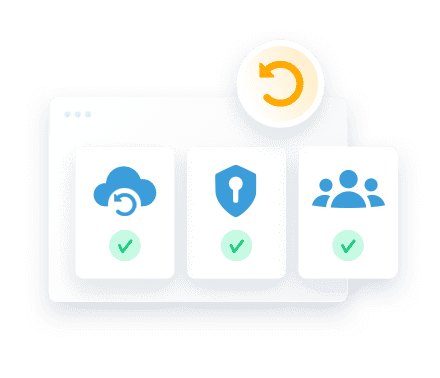High-performance Backup Solution For Corporate Tips and Tricks
Organizations must overcome the urgent challenge of protecting their priceless data as digital data storage becomes more and more important. By offering safe and accessible storage for important data, cloud database backup offers a solution. We will discuss the advantages and significance of cloud database backup in this article, as well as the best methods for putting it into practice and effectively managing it.
- Knowing how to backup a cloud database
The process of keeping copies of your database in a remote server or data center that is online is referred to as cloud database backup. It offers an off-site backup option that guarantees data redundancy, hardware fail-safeness, natural disaster defenses, and cyber threats.
- Cloud database backup benefits:
Tailored Backup Music Online Customization Options
Compared to conventional backup techniques, cloud database backup has a number of advantages. These consist of:
- Data redundancy: By storing data across multiple servers, hardware failures and disasters are less likely to cause data loss.
Scalability: Depending on your needs, cloud backup makes it simple to scale up or down your storage requirements.
Accessibility: With cloud backup, any internet-connected device will allow you to access your data whenever, wherever you want.
Cost-effectiveness: Cloud backup makes it unnecessary to spend money on expensive backup personnel, infrastructure, and maintenance.
Automated Backups: By automating scheduling and incremental backups, cloud backup services frequently eliminate the need for manual labor.
- Picking the best Cloud Database Backup Service:
Consider the following when choosing a cloud database backup provider:
Intuitive Online Backup Windows Server Disadvantages
- Security Measures: Make sure the service provider uses reliable security measures like compliance certifications, access controls, and encryption.
- Reliability: Look for businesses that have a solid reputation for dependability and long-term warranties.
- Scalability: Verify that the service provider provides storage options that can adapt to your expanding data requirements.
- Data transfer speed: Take into account the provider's bandwidth and network infrastructure for quick and effective data transfers.
- Using cloud database backup to implement:
Use these best practices to implement cloud database backup successfully:

- Define Backup Policies: Clearly specify your backup requirements, including the frequency, retention, and recovery point goals.
- Encryption: To guarantee the confidentiality and integrity of your data, encrypt it before transferring it to the cloud.
- Regular Testing: To ensure that your backups are accurate and complete, regularly test the restoration process.
Implement monitoring and alerting systems to quickly identify problems or failures in the backup process.
- Disaster Recovery Plan: Create a thorough disaster recovery plan that outlines how to recover data in the event of an emergency.
Cost-effective Backup External Hard Drive To Cloud Performance Evaluation
- Managing a backup cloud database
Continuous monitoring and maintenance are necessary for managing cloud database backup. Think about the following advice:
- Regularly Monitor Backups: Keep an eye visit their website on the backup procedure to make sure it's done correctly and quickly fix any mistakes or failures.
- Review and update backup policies on a regular basis to keep up with evolving regulations and business needs.
- Retention Management: Depending on business priorities and legal requirements, control how long your backups remain in storage.
Implement data archiving techniques to transfer rarely accessed data to cost-effective storage tiers while maintaining accessibility.
Periodic Reviews: Examine your cloud database backup strategy on a regular basis to spot this content areas for improvement and make sure it aligns with company objectives.
What's Important:
Fast Backup Solution For Data Center Advantages
Data redundancy, scalability, accessibility, cost efficiency, and automated backups are just a few of the advantages of cloud database backup, which offers secure and accessible storage for important data.
- When selecting a provider, take security precautions into account, as well as dependability, speed of data transfers, and reliability.
Creating backup policies, encryption, routine testing, monitoring and alerting, and creating a disaster recovery plan are all steps in the implementation of cloud database backup.
Regular backup monitoring, backup policies updates, retention management, data archiving, and periodic reviews are all necessary to effectively manage cloud database backup.

Key Takeaways or a related term
Data redundancy and protection from hardware failures or disasters are guaranteed by cloud database backup.
Scalability, accessibility, cost effectiveness, and automated backups are some of the advantages.
When selecting a provider, take security precautions into account, as well as dependability and data transfer speed.
- Adopt best practices like disaster recovery planning, encryption, regular testing, monitoring, and alerting.
Monitoring backups, updating policies, managing retention, putting data archiving into place, and conducting periodic reviews are all parts of effective management.




